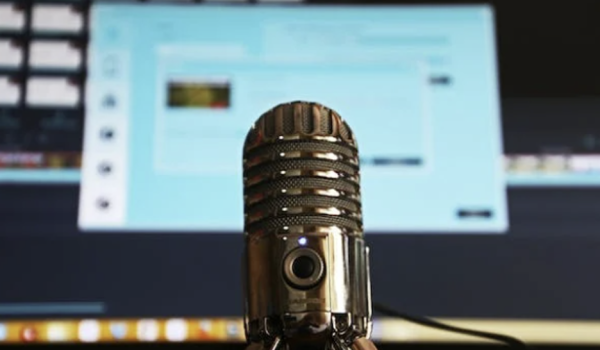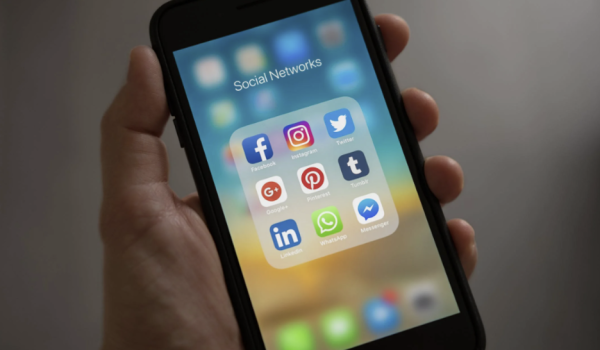Sweaty palms, racing heart, fired up cheeks, rush of adrenaline, dry mouth, a suddendly blank mind with not knowing what to say next – sounds familiar? Don't worry, around 97% of people have experienced glossophobia – fear of speaking in public.
Stage fright arises from feeling insecure and experiencing lack of confidence, as well as depending too much on opinion of others. The cause of the irrational fear of public speaking lies in man’s inborn concern for reputation, as well as his fear of rejection. We feel like we are in a specially vulnerable position when exposed before the audience. Some people feel more comfortable talking behind the rostrum, because it stands like sort of a protection and guard between them, as speakers, and the audience. This kind of barrier makes them feel less exposed. That’s why some people subconsciously take the so-called T-rex position: they put their hands unnaturally in front of themselves in order to create a certain wall of protection between them and the audience. It looks a bit funny and weird.
What happens in our bodies when we experience stage fright?
Most of the people start having negative thoughts and can’t help but visualize failure and humiliation. These kind of thoughts trigger the pituitary gland, which then releases a hormone as a typical reaction to stress. This hormone affects the Adrenal Glands in the kidneys and adrenalin is released in your blood. Your digestive system shuts down and your whole body is in sort of a stand by position – it’s instinctively preparing itself for defense and for emergency escape.
There are techniques to calm yourself down before the public performance, such as deep breathing from your diaphragm and stretching the body, breathing with the help of a paper bag (in case you are hyperventilating), increased physical activity before the show (in order to restore chemical balance). Some say that orange juice is an excellent natural beverage that reduces the level of stress and that coffee’s to be avoided (it upsets the chemical balance, and you don’t need it, you are disturbed enough, right?)
Another interesting technique includes using your body language in order to trick your body and mind that you feel great and dominate. By taking high power body posture, you actually send signals to your body that you are in control and ready to face the audience. Experts recommend to take some time alone before delivering your speech. For example, you could go to the bathroom, somewhere you can be alone and take the Superman pose. This is an example of an open, high power body posture, with which you are showing that you are conqeuring the space around you. You should hold this posture for a couple of minutes in order to make your body and mind receive the message that you are a winner and that you can do the thing. Holding this position long enough will lower the level of your cortisol (stress) and increase the level of your testosterone (which is to blame for alpha attitude and great confidence).
Also, you can try controlling your negative thoughts and force yourself into thinking positive. If negative thoughts can trigger our hipotalamus and start a physical reaction in our bodies – then so can the positive ones change the way we feel. But of course, it is much harder to evoke them when you’re feeling stresful.
Some people suggest using auto-suggestion through inner dialogue: cheering yourself and repeating – yes I can, yes I can, yes I can.
What’s also effective for most of the people is visualisation of success. You can do it in two ways: by searching through your past experience or by fantasizing about the future. If you want to use the past, you should think of a time when you really had a good day and felt great about yourself, when you managed to achieve the goal you worked so hard on or score a significant success. Thinking about past success will make you feel good about yourself and it will remind you why you are there giving a speech in the first place. If you are an imaginative person, you can try to visualize your successful speech that is about to happen: visualize yourself entering the room, going on stage, looking at the faces in the audience, taking a calm deep breath and being exquisite. Your speech was so well accepted and you got a thundering applause. Visualize how your idea made an impact on your audience, how people came after the speech to congratulate you and to thank you for inspiring them.
These are all hacks regarding on how to cope with stage fright when it occurs. But is there a way to deal with stage fright in the long term?
There is a young man who found an answer to this riddle: yes, it is possible. You should try lying down on the street for 30 seconds. This sounds a bit crazy, but it is actually a really interesting theory that’s been suported by science. The idea is conducted by Till H. Gross and you can watch his TEDx talk.
In the sixties, exposure therapy was a popular treatment in the field of psychology. Today, it has evolved into cognitive behavioral therapy. Basically, the only way to beat the fear of public speaking is to conciously and repeatedly put yourself in the situations where you are supposed to deliver a speech in front of a group of people, where you feel uncomfortable, vulnerable and nervous.
Let’s explain how it works via the diagram that mr Gross has provided in his presentation. At the begining, you will expose yourself more and more to the unpleasant situation and the anxiety will also increase. However, when you continue with exposure, your anxiety will at some point stop increasing and then it will start decreasing. Why is that? Well, our autonomous nervous system has this beautiful ability to memorize experiences. As we said, the fear of public speaking is irational. Because – what is the worse thing that can happen? You could embarrass yourself. That is the worst key scenario. And so what? The world will not stop spinning, life will go on. So, by exposing yourself frequently to public speaking, your brain will start to realize that there is no real danger in standing in front of the audience. You will become more confident, more sure of yourself and a better speaker as well.
Mr Gross tried an interesting experiment: in order to challenge himself out of his comfort zone, he decided to expose himself openly to other people’s mockery. His little expermient has shown that, by doing something weird and unusual such as lying in the street – people will react differently, but the vast majority just won’t care. So, why should you care about their opinions?
The same thing stands for public speaking. If you do manage to embarrass yourself, maybe there will be a few sarcastic and biting people in the audience that will have a few mean comments or even laugh at you. But that shows more about their own personal frustration than about you. The fact is – when they walk out the door, you are a totally insignificant factor for their lives, they will forget about you. The only way to make yourself relevant to others is to say something important, make an impact, get your message through, be innovative and make them grab on your idea. That is the only way you will make a change in their lives and the only way they won’t instantly erase you from their experience the minute they leave your public performance.
Mr Gross has developed his own way of coping with irrational fears and the lack of confidence, which is one of the main reasons for stage fright, as well as our biological predisposition to worry about our reputation. He started his own online courses (for free), making real, scientific psychology research accessible to everyone. If you feel like you need support for pushing yourself out of your comfort zone, check out Mr Gross’s project.
Support us!
All your donations will be used to pay the magazine’s journalists and to support the ongoing costs of maintaining the site.
Share this post
Interested in co-operating with us?
We are open to co-operation from writers and businesses alike. You can reach us on our email at [email protected]/[email protected] and we will get back to you as quick as we can.









